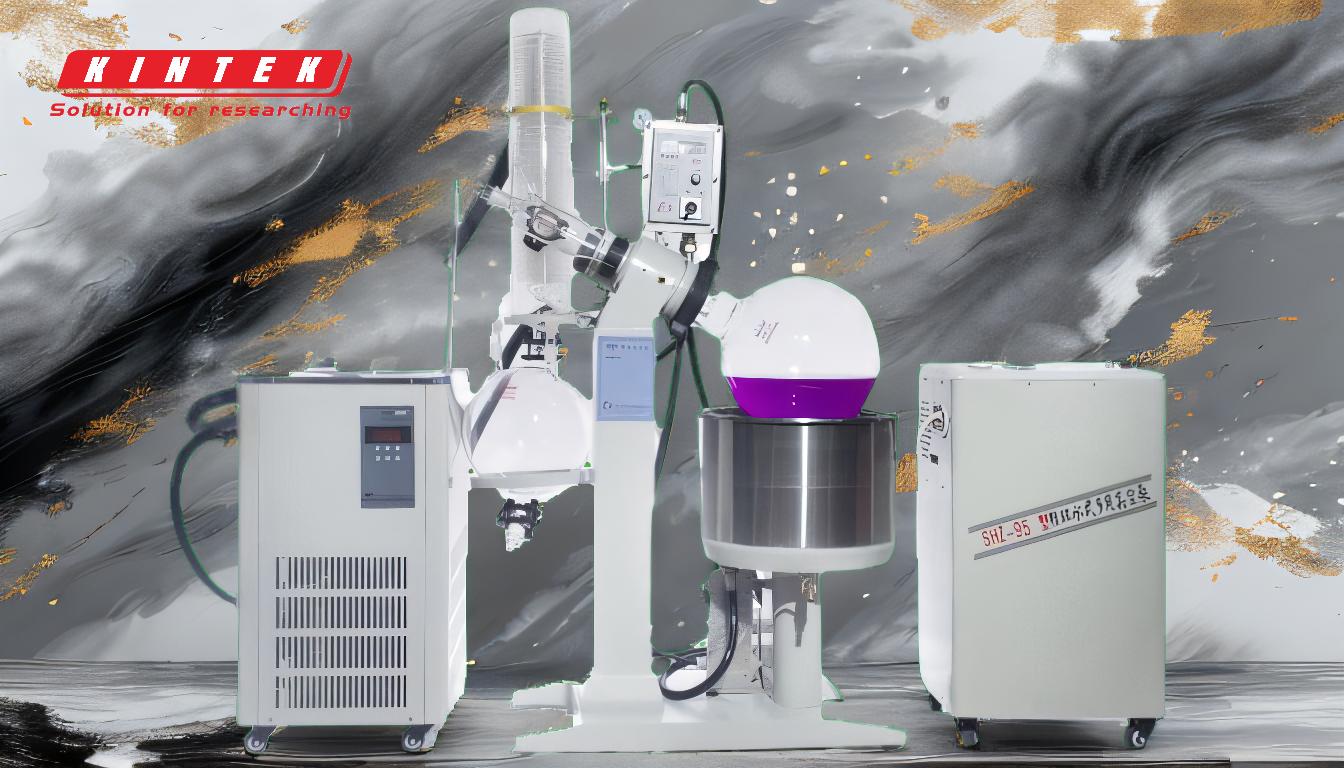Distillation is a critical process in the food industry, used to separate, purify, and concentrate various substances. It is particularly valuable for processing heat-sensitive or high-boiling-point materials, ensuring the retention of quality and nutritional value. Applications include the production of edible oils, natural flavors, fragrances, and functional ingredients like monoglycerides and essential oils. Techniques such as short path distillation and molecular distillation are employed to achieve high purity and efficiency. These processes are essential for creating products like rose oil, cinnamon oil, cod liver oil, and other functional oils used in food, skincare, and healthcare. Distillation also plays a role in purifying fermented products, such as alcoholic beverages, and extracting flavors and aromas from herbs and plants.
Key Points Explained:

-
Production of Edible Oils and Functional Oils:
- Distillation is used to produce high-quality edible oils such as olive oil, soybean oil, and fish oil. These oils are essential for cooking and nutritional purposes.
- Functional oils like cod liver oil, rice bran oil, and wheat germ oil are also purified through distillation. These oils are rich in vitamins and omega fatty acids, making them valuable for health and wellness products.
-
Extraction of Natural Flavors and Fragrances:
- Distillation is a key method for extracting natural flavors and fragrances from plant materials. For example, cinnamon oil and rose oil are obtained through this process.
- Cinnamon oil is used in both skincare and healthcare, known for its warming properties and ability to support digestive health.
- Rose oil is widely used in skincare products due to its soothing and aromatic properties.
-
Purification of Heat-Sensitive Compounds:
- Techniques like short path distillation and molecular distillation are ideal for processing heat-sensitive materials. These methods operate under reduced pressure, lowering the boiling points of substances and preventing thermal degradation.
- This is particularly important for preserving the nutritional and functional properties of food ingredients, such as vitamins, antioxidants, and essential oils.
-
Production of Monoglycerides and Other Functional Ingredients:
- Monoglycerides, which are emulsifiers used in food products, are produced through distillation. They help stabilize mixtures of oil and water, improving texture and shelf life.
- Other functional ingredients, such as lauric acid and propylene glycol, are also purified using distillation. Lauric acid is used in food and personal care products, while propylene glycol is a common food additive and solvent.
-
Purification of Fermented Products:
- Distillation is essential for purifying fermented products like alcoholic beverages. It removes impurities and concentrates the desired flavors and alcohol content.
- This process ensures the safety and quality of beverages such as whiskey, vodka, and rum.
-
Separation of High-Boiling-Point Materials:
- Distillation is used to separate high-boiling-point materials, such as fatty acids and waxes, which are difficult to process using conventional methods.
- This is particularly useful in the production of natural and synthetic paraffin products, as well as in the purification of polymer resins and other industrial materials.
-
Applications in Traditional Chinese Medicine and Pharmaceuticals:
- Distillation is used to purify functional oils and extracts used in traditional Chinese medicine and pharmaceuticals. These products often require high levels of purity to ensure efficacy and safety.
- Examples include the extraction of vitamin E and other antioxidants, which are used in both food and healthcare products.
-
Oil Stabilization and Safe Storage:
- Distillation is used in oil stabilization, a process that reduces the vapor pressure of crude oil. This makes it safer for storage and transportation.
- This application is particularly important in the petrochemical industry, where safety and efficiency are critical.
-
Water Purification:
- Distillation is used in water purification techniques, such as desalination, to produce drinking water from seawater.
- Distilled water is also used in industrial applications, such as in lead-acid batteries and low-volume humidifiers.
-
Cryogenic Distillation for Air Separation:
- On an industrial scale, cryogenic distillation is used to separate air into its primary components: nitrogen, oxygen, and argon.
- These gases are essential for various industrial and medical applications, including food packaging and preservation.
In summary, distillation is a versatile and indispensable process in the food industry, enabling the production of high-quality, pure, and functional ingredients. Its applications range from the extraction of essential oils and flavors to the purification of fermented products and the stabilization of oils. By leveraging advanced techniques like short path and molecular distillation, the food industry can meet the growing demand for safe, nutritious, and high-quality products.
Summary Table:
| Application | Key Benefits |
|---|---|
| Production of Edible Oils | High-quality oils like olive, soybean, and fish oil for cooking and nutrition. |
| Extraction of Flavors & Fragrances | Natural extracts like cinnamon oil and rose oil for skincare and healthcare. |
| Purification of Heat-Sensitive Compounds | Preserves nutrients and functional properties using advanced techniques. |
| Production of Monoglycerides | Emulsifiers for stabilizing food textures and extending shelf life. |
| Purification of Fermented Products | Ensures safety and quality in alcoholic beverages like whiskey and vodka. |
| Separation of High-Boiling Materials | Processes fatty acids and waxes for industrial applications. |
| Traditional Medicine & Pharmaceuticals | Purifies functional oils and antioxidants for health products. |
| Oil Stabilization | Reduces vapor pressure for safer storage and transportation of crude oil. |
| Water Purification | Produces distilled water for drinking and industrial use. |
| Cryogenic Distillation | Separates air into nitrogen, oxygen, and argon for industrial and medical uses. |
Learn how distillation can improve your food production processes—contact our experts today!










